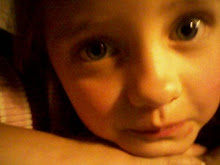Ah...now that Oedipus is over let's take a look back and see if I feel differently....
Uh, maybe...no? OK, maybe a little...The show was a visual feast. The "post apocalyptic tribal masochistic society" definitely had presence. The world in which they lived was dangerous, jagged at every turn, and about to collapse upon it's inhabitants at any moment. But it was lacking...emotion? Or maybe the message? The direction was definitely lacking. It was lost at times and even lacking verbal--action based follow through. There was a great deal of yelling and screaming. At times, I could hardly understand just what was being said by the actors. I am proud of the overall look of the show and those who had a hand in creating the vision--I simply saw this play as something different and going in a much different direction.

I needed Oedipus, as a character in this play, to have an almost Dr. Jekyll and Mr. Hyde like quality. Meaning, I needed to see his loving nature for his people then his complete irrational dangerous side of his personality. However, there was none...nothing, just one level--loud arrogance. For me, this side should have be one side of many facets in his personality. Oedipus, as a man and as a king, should portray the brilliant, discerning ruler who can" suckle" his kingdom by knowing what it needs even before it knows what those needs are and yet show his rash side through the retelling of the incident at the three crossroads as well as in his dismissal of the blind prophet, Tiresias. He should be a wise, confident King but instead was nothing more than a loud, creepy, arrogant man. I say creepy because at times the King seems to molest the children of Thebes. We shouldn't have a foreshadowing of any incest because the reveal of such debauchery only lessens the shock of the true identity of Oedipus! It also detracts from the heinous nature of such a crime. To have such an act foreshadowed confuses the audience..."Why is it OK to 'molest' others close to you but not OK to sleep with Mom?" I know as I sat in the audience, I wondered this and my wonderings were audibly manifested by a woman sitting behind me. Really, for your average audience member, Greek tragedies (for that matter, Greek plays in general) are confusing enough so they do not need to be made more confusing by blurring the lines of what is determined to be right and wrong. Clarify your message by drawing bold lines between opposing sides.
Creon...Creon...Creon...again, the direction came on too strong. We should see the change in Creon happen as the play proceeds--starting out as faithful friend and brother then moving onto the politician and finally, the man who would be king. Creon is the brother to Iocaste and with her, he and Oedipus rule the kingdom as a family although Oedipus is the named king. He is sensitive and has a concern about the effects of the news from the oracle. But, in what I witnessed, never once did I believe that Creon and Oedipus were ever friends only rivals. In this production, it appeared as though Creon was searching for any way to usurp the kingdom and take the throne for himself. In many ways I felt as though I were watching Richard III instead of Oedipus.
Hmmm...The Chorus...ambivalent? There wasn't an understandable opposition of the strophe and antistrophe. The Choragos (for our play was just one man--I was OK with that...) was rational at least on the page but in action I could not tell if he was supposed to be helping Oedipus and the audience understand/weigh out the sides that had been presented or if he was just some crazy guy that had had given a set of overly used wings to...yes, people wings! I do it for many shows, but my hope was that it would create a powerful look to the actor who's words were meant to be an influential argument persuading against the rash side of Oedipus' personality. (Well, that is what we are supposed to hope for, anyway.)There wasn't any difference in the opposing arguments. I tried to create the clarity through the costuming but the lines became blurred through the vision of the dominants and submissives. The point when this became most bothersome is when, after Iocaste commits suicide, the chorus should be lamenting the loss of the queen's life and showing forth the emotion of the situations that have been and fearful knowing of the situations that must surely be. Unfortunately, they just appeared and sounded callous, hardhearted, and indifferent to her death. When I could endure it no longer I closed my eyes and began to see the image of how I longed for it to be...the chorus in off white set against a dark blue cyc with minimalist scenic pieces chanting a mournful tune while male members of the chorus carry a sarcophagus of the fallen queen...an image of beauty, greatness and loss...the lines of the chorus would then spew forth like a fountain of emotion covering the audience with the horror of not only the incestuous acts but also the tragedy of the King's inability to have made any choices other than those that were made...and...then the scene would change to a darker cyc saturated with red as the fallen king, Oedipus, is led forth by those who still appear loyal to him...the scene should grow darker as the consequences of his actions set in motion the fate of Thebes with Creon heartsick and angered over the ghastly events that have now given him the kingdom...ultimately leaving the stage dark as a single pool of light bathes the empty throne of Thebes...holding for 5 seconds, growing brighter, brighter, brighter...and then sound cue "boom" and lights out...

Hey, a girl can dream...--MHW





